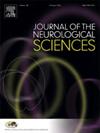First analysis of the Myasthenia Gravis SPOTLIGHT Registry: outcomes with eculizumab and ravulizumab
IF 3.2
3区 医学
Q1 CLINICAL NEUROLOGY
引用次数: 0
Abstract
Background
Complement component 5 inhibitors are indicated for the treatment of anti-acetylcholine receptor antibody-positive generalized myasthenia gravis (gMG). Clinical trials have demonstrated improved functional ability, muscle strength, and quality of life (QOL) in patients treated with eculizumab or ravulizumab. Evidence for their effectiveness and safety in clinical practice is reported here.
Methods
Data from the global MG SPOTLIGHT Registry were collected from patients with gMG currently or previously treated with eculizumab or ravulizumab in routine clinical practice. Effectiveness was evaluated among patients with ≥3 outcome measurements using MG Activities of Daily Living (MG-ADL) and MG-QOL 15-revised (MG-QOL15r) patient-reported outcomes and/or Myasthenia Gravis Foundation of America Clinical Classification (MGFA class) physician assessments. Safety data were also assessed.
Results
189 patients were treated with eculizumab. Mean (95% CI) MG-ADL scores (n=110) decreased by 4.2 (-5.0, -3.4) points and MG-QOL15r scores (n=40) decreased by 7.5 (-9.9, -5.0) points from before eculizumab initiation to first assessment during/after treatment (median eculizumab treatment duration: 18.0 months). 45/103 (43.7%) patients were MGFA class 0-II before eculizumab versus 89/103 (86.4%) at first assessment. After transitioning to ravulizumab, improvements in MG-ADL scores (n=37), MG-QOL15r scores (n=14), and MGFA class (n=34) were maintained (median ravulizumab treatment duration: 8.7-11.4 months). Few treatment-related serious adverse events (eculizumab: Aspergillus infection, nervous system disorder [n=1 each]; ravulizumab: anaphylactic reaction [n=1]) and no meningococcal infections were reported with eculizumab or ravulizumab treatment.
Conclusions
In routine clinical practice, eculizumab was well tolerated and effective for patients with gMG. Treatment benefits were maintained after transition to ravulizumab.
重症肌无力SPOTLIGHT注册的首次分析:eculizumab和ravulizumab的结果
补体成分5抑制剂用于抗乙酰胆碱受体抗体阳性的全身性重症肌无力(gMG)的治疗。临床试验表明,eculizumab或ravulizumab治疗的患者功能能力、肌肉力量和生活质量(QOL)得到改善。在临床实践中,其有效性和安全性的证据报告在这里。方法来自全球MG SPOTLIGHT Registry的数据来自目前或以前在常规临床实践中接受eculizumab或ravulizumab治疗的gMG患者。使用MG日常生活活动(MG- adl)和MG- qol 15修订(MG- qol15r)患者报告的结果和/或美国重症肌无力临床分类基金会(MGFA级)医生评估,对具有≥3项结果测量的患者进行有效性评估。安全性数据也进行了评估。结果189例患者接受eculizumab治疗。平均(95% CI) MG-ADL评分(n=110)下降4.2(-5.0,-3.4)分,MG-QOL15r评分(n=40)下降7.5(-9.9,-5.0)分,从eculizumab开始前到治疗期间/后的首次评估(中位eculizumab治疗持续时间:18.0个月)。在eculizumab前,45/103(43.7%)患者为MGFA 0-II级,而首次评估时为89/103(86.4%)。在过渡到ravulizumab后,MG-ADL评分(n=37), MG-QOL15r评分(n=14)和MGFA类别(n=34)的改善得到维持(ravulizumab治疗的中位持续时间:8.7-11.4个月)。治疗相关严重不良事件极少(eculizumab:曲霉感染、神经系统紊乱[n=1];拉乌利珠单抗:过敏反应[n=1]),且未见埃曲利珠单抗或拉乌利珠单抗治疗的脑膜炎球菌感染报告。结论在常规临床实践中,eculizumab对gMG患者具有良好的耐受性和疗效。转换到ravulizumab后,治疗效果保持不变。
本文章由计算机程序翻译,如有差异,请以英文原文为准。
求助全文
约1分钟内获得全文
求助全文
来源期刊

Journal of the Neurological Sciences
医学-临床神经学
CiteScore
7.60
自引率
2.30%
发文量
313
审稿时长
22 days
期刊介绍:
The Journal of the Neurological Sciences provides a medium for the prompt publication of original articles in neurology and neuroscience from around the world. JNS places special emphasis on articles that: 1) provide guidance to clinicians around the world (Best Practices, Global Neurology); 2) report cutting-edge science related to neurology (Basic and Translational Sciences); 3) educate readers about relevant and practical clinical outcomes in neurology (Outcomes Research); and 4) summarize or editorialize the current state of the literature (Reviews, Commentaries, and Editorials).
JNS accepts most types of manuscripts for consideration including original research papers, short communications, reviews, book reviews, letters to the Editor, opinions and editorials. Topics considered will be from neurology-related fields that are of interest to practicing physicians around the world. Examples include neuromuscular diseases, demyelination, atrophies, dementia, neoplasms, infections, epilepsies, disturbances of consciousness, stroke and cerebral circulation, growth and development, plasticity and intermediary metabolism.
 求助内容:
求助内容: 应助结果提醒方式:
应助结果提醒方式:


